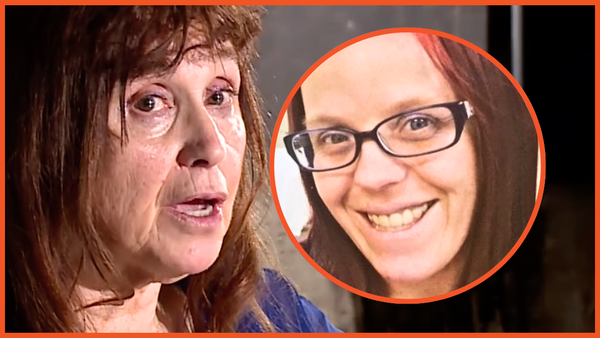
Hello and good morning. My picks from the Guardian this week have something for everyone: films, TV, a podcast, a book extract, the internet … dive on in, why don’t you.
(Oh, and: our very important bird of the year poll opens on Monday – make the right choice and vote for the peregrine.)
1. Notes on a dolphin sex scandal

1990 was a big year. I was born (the same day the world’s first completely low-floor tram was introduced in Bremen!), Germany was reunified and Freddie, a wild dolphin, rocked up in the quaintly named English town of Amble and started a sex scandal.
In a nutshell: (Maybe you weren’t there, or were too young to be reading the news, or were totally distracted by the modern delights of a low-floor tram.) Animal rights activist Alan Cooper was arrested for “wanking off the dolphin”. One of the witnesses to the alleged incident, Peter Bloom, owned the kind of dolphinarium Cooper and his compatriots frequently campaigned against. And 33 years later, a woman has done a podcast on the whole thing.
Cooper was found not guilty at a trial in the crown court, but the effects of the scandal were devastating. “His whole raison d’être is helping people and looking after animals,” the podcast host, Becky Milligan, says. “It’s difficult to express what that did to him, to be accused of abusing the very thing you’re trying to protect.”
One from the playbook: “When it comes to undermining someone’s reputation, accusing them of having an indecent or sinister fetish, particularly involving an animal, is just about the most textbook move there is – just ask Catherine the Great,” Nell Frizzell writes.
How long will it take to read: three or so minutes
2. Internet addicts anonymous

The Guardian’s US technology reporter has explored the world of Internet and Technology Addicts Anonymous, a 12-step program based on AA. Internet and gaming dependence, unlike substance abuse disorders, is considered a “behavioural” addiction, Kari Paul explains. Still, “it’s just like typical addictions, except the drug is dopamine”, one of the group’s founders tells her. Indeed.
A different approach: “While organisations like Narcotics Anonymous and Alcoholics Anonymous are based on an abstinence framework – one either drinks or does not drink – programs like ITAA are more nuanced,” Paul writes, “with each member determining their own definition of sobriety.”
How long will it take to read: three and a half minutes
3. Grief under occupation

This account of a Palestinian family whose child was taken to an Israeli jail is gut-wrenching. In an excerpt from his forthcoming book, Nathan Thrall describes the moment in 2005 when Huda Dahbour’s son Hadi (not pictured above) was arrested and the story of Huda’s life before and after that night. He traces the deep fractures inflicted on individuals, on marriages and through communities who live under violent occupation – hounded first by “an ever-more elaborate permit regime”, then by intense economic pressure, then growing provocations from Israeli troops.
The numbers: Thrall cites a UN report from the year after Hadi’s arrest, which found “that 700,000 Palestinians had been arrested since the occupation began, equal to roughly 40% of all the men and boys in the territories”.
The damage wasn’t only to the affected families, each of them grieving lost years and lost childhoods. It was to the entire society, to every mother, father and grandparent, all of whom knew or would come to learn that they were powerless to protect their children.
How long will it take to read: nine minutes
4. Here are Mark Kermode’s top films from every year since 2013

The Observer’s film critic stepped down this week after exactly a decade in the role. His reflections on cinema’s various transformations offer plenty of insights – but I’m most interested in his picks from each of those 10 years.
Bonus: Kermode also anoints one turkey, “far and away the worst film of the past 10 years”. “As I said in my original one-star Observer review, The Human Centipede was more sensitively attuned to issues of gender politics, had better jokes and didn’t feature a cameo appearance by Piers Morgan,” he writes.
What is this “hellscape of pornographic consumerist vulgarity that makes Sex and the City 2 look like a Marxist tract”? Find out here.
How long will it take to read: six minutes
5. ‘The human mind is a cesspit – in that sense, I think Peep Show is eternal’

During the pandemic I spent many, many hours watching this stupid, brilliant show – all nine seasons of it. This makes reading about its writers and stars on how it started, took off and got well and truly into a groove fun – in the way reading an old diary is fun, or, like, getting drunk with an ex is fun. Have I moved on? Sure. Is it still highly entertaining and yet also laced with a sense of weariness and indefinable dread? Absolutely.
Fun fact: The POV-style show was all, bar one series, shot by a single cameraman. “He basically had to play all the characters,” Robert Webb (who played Jeremy) remembers. “During all the sex scenes, you’ve got Nick bouncing up and down on you, so it was just as well that he’s a really nice, nonthreatening person.”
“Anything embarrassing you can think of that happened to a character, the cameraman had to do it too,” director Becky Martin says. “My favourite was probably when he gave [David Mitchell’s character] Mark ‘an angry lapdance’.”
How long will it take to read: about five minutes
Well, that’s me signing off for now. Have a lovely weekend and don’t forget to write: australia.newsletters@theguardian.com
Sign up
If you would like to receive these Five Great Reads to your email inbox every weekend, sign up here. And check out our weekly culture and lifestyle newsletter, Saved for Later, our twice-daily breaking news updates and all other Australian newsletters here.







